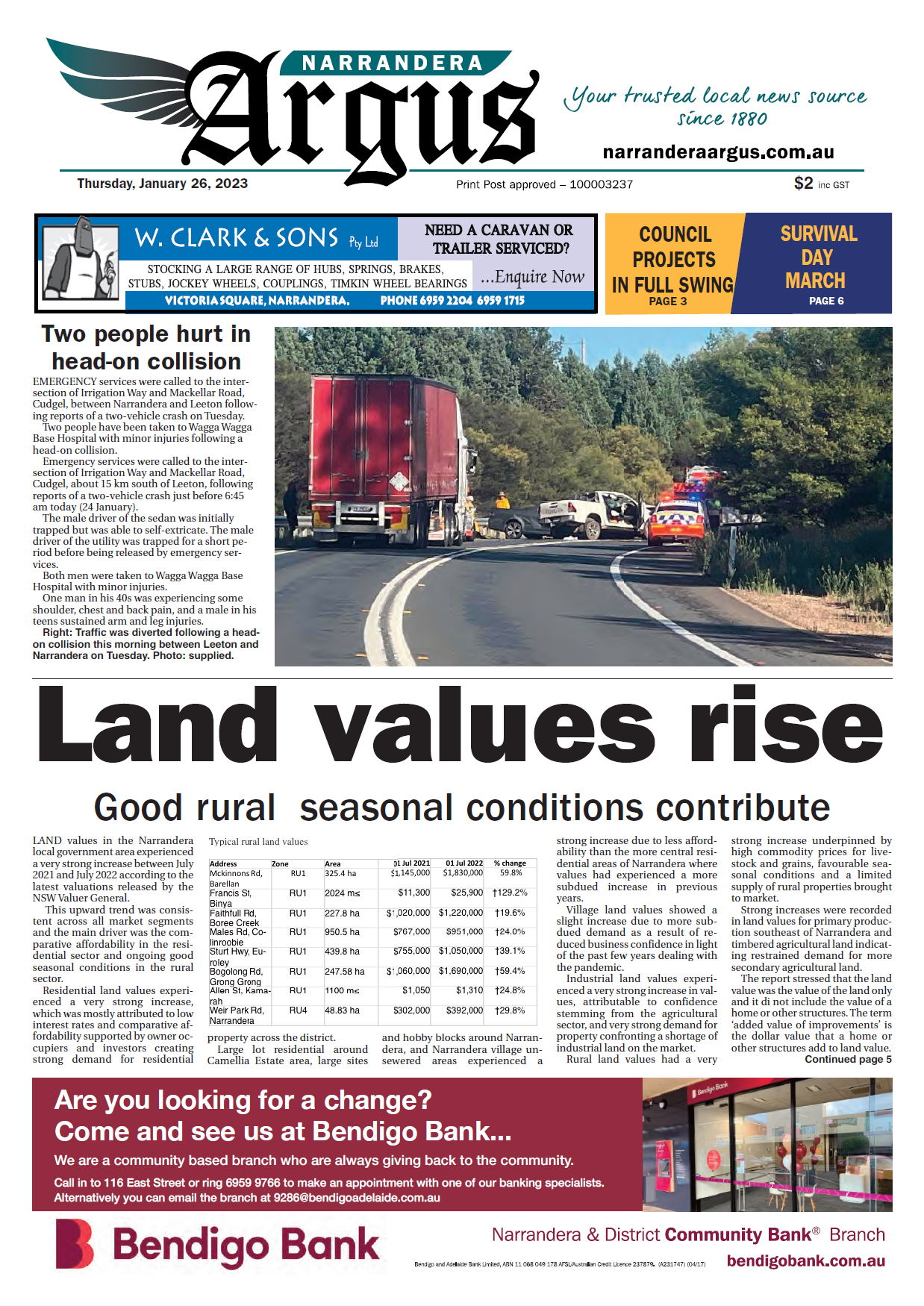Beekeeper David Mumford from Narrandera’s King Bee Honey has expressed concerns for the future of his industry which he believes needs regulation to clean it up.
“The industry has taken a turn for the worse with operators not doing the right thing,” he said.
The recent varroa mite biosecurity emergency highlighted a lack of regulation and Mr Mumford would like to see the Department of Primary Industries (DPI) given more power to ensure safe practices.
The varroa mite was detected in sentinel hives near the Port of Newcastle in June and the DPI’s Emergency Response Coordinator Chris Anderson said the beekeeping community had supported the mandatory surveillance measures introduced last year.
“Surveillance is a critical part of the effort required to achieve the goal of eradicating the mite and we need beekeepers to work with us to establish the base of data needed to maintain confidence in containment,” he said.
King Bee Honey has been operating in Narrandera for 45 years and for the first time has had to conduct alcohol washes on hives.
While the process of removing several hundred bees and submerging them in alcohol to dislodge any potential parasites is time-consuming, it is better than the alternative, Mr Mumford said.
The process takes two hours per load but keeps them clear of varroa. Veteran beekeepers understand what it takes to manage their hives, but the rise of smaller operators and the boom in backyard apiaries is putting them at risk.
Mr Mumford said bees take a lot of looking after and if people wanted to have them they should learn first and don’t just have a hive in the backyard.
Hives that have sat there for years and haven’t been attended to are worse than anything else that people are doing.
There are estimated to be more than 380,000 registered hives in NSW.
This article appeared in the Narrandera Argus, 26 January 2023.


